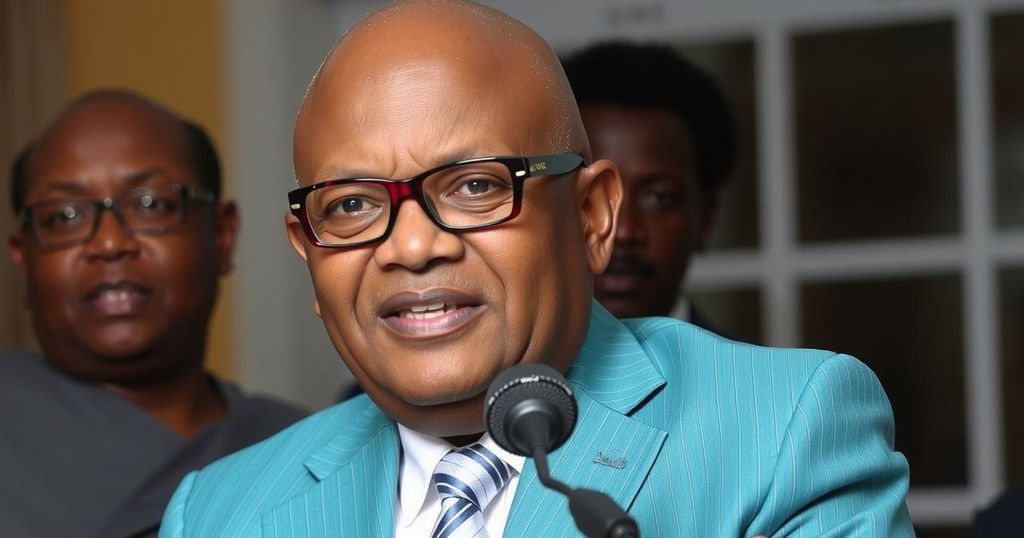Namibia Election: Opposition Candidate Itula Rejects Poll Results Due to Irregularities
The Independent Patriots for Change (IPC) in Namibia has announced its refusal to accept the results of the recent general election, citing severe logistical issues and allegations of electoral malpractice. Presidential candidate Panduleni Itula claimed the election was marred by irregularities, while initial results show Swapo’s Netumbo Nandi-Ndaitwah leading but lacking a majority. The IPC intends to seek legal recourse for perceived electoral injustices, reflecting waning support for Swapo in the region.
Namibia’s principal opposition party, the Independent Patriots for Change (IPC), has declared its refusal to accept the results of the recent general election due to substantial logistical issues and allegations of electoral misconduct. The party’s presidential candidate, Panduleni Itula, claimed there were “glaring and undeniable” irregularities during the election, which he argues have rendered the results illegitimate. Voting commenced on Wednesday but extended through Saturday in some areas due to shortages of ballot papers and technical difficulties with voting equipment.
Itula was competing against the South West Africa People’s Organisation (Swapo) candidate, Netumbo Nandi-Ndaitwah, who aspires to be Namibia’s first female president. Although initial counts indicate Nandi-Ndaitwah received 48% of the votes compared to Itula’s 30%, a candidate must secure a majority to avoid a runoff. The IPC has vowed to seek legal recourse and encourage affected voters to report their grievances to local authorities. Swapo, the longstanding party in power since independence in 1990, is facing declining support, as seen in the previous election where its vote share fell below 60% for the first time.
Namibia gained independence from South African rule in 1990 and has been predominantly governed by the South West Africa People’s Organisation (Swapo), which ended decades of apartheid. Recent elections have revealed decreasing support for Swapo, mirroring broader regional trends experienced by historical liberation movements in southern Africa. Reports of electoral irregularities have surfaced during recent elections, highlighting potential challenges to the democratic process within the nation. As the IPC aims to reshape the political landscape, the implications of this election on future governance and opposition dynamics in Namibia will be significant.
In conclusion, the IPC’s refusal to acknowledge the recent election results points to serious concerns regarding electoral integrity in Namibia. With Panduleni Itula’s allegations of fraud and logistical failures accompanying the voting process, the road ahead for Swapo and its challengers appears fraught with tension. The outcome of this election not only reflects current political sentiments but also establishes a pivotal moment for the future of democracy in Namibia.
Original Source: www.bbc.co.uk




Post Comment